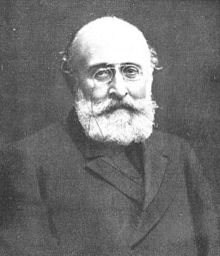| This article needs additional citations for verification. Please help improve this article by adding citations to reliable sources. Unsourced material may be challenged and removed. Find sources: "Francisco Silvela" – news · newspapers · books · scholar · JSTOR (June 2023) (Learn how and when to remove this message) |
You can help expand this article with text translated from the corresponding article in Spanish. (March 2024) Click for important translation instructions.
|
| The Most ExcellentFrancisco Silvela | |
|---|---|
 Photograph by Kaulak Photograph by Kaulak | |
| Prime Minister of Spain | |
| In office 6 December 1902 – 20 July 1903 | |
| Monarch | Alfonso XIII |
| Preceded by | Práxedes Sagasta |
| Succeeded by | Raimundo Fernández-Villaverde |
| In office 3 May 1899 – 22 October 1900 | |
| Monarch | Alfonso XIII |
| Preceded by | Práxedes Sagasta |
| Succeeded by | Marcelo Azcárraga |
| Seat K of the Real Academia Española | |
| In office 30 April 1893 – 29 May 1905 | |
| Preceded by | Mariano Roca de Togores |
| Succeeded by | Cristóbal Pérez Pastor |
| Personal details | |
| Born | Francisco Silvela y Vielleuze (1843-12-15)15 December 1843 Madrid, Spain |
| Died | 29 May 1905(1905-05-29) (aged 61) Madrid, Spain |
| Signature | |
Francisco Silvela y Le Vielleuze (15 December 1843, in Madrid – 29 May 1905, in Madrid) was a Spanish politician who became Prime Minister of Spain on 3 May 1899, succeeding Práxedes Mateo Sagasta. He served in this capacity until 22 October 1900. Silvela also served a second term from 6 December 1902 to 20 July 1903, in which he succeeded another one of Práxedes Mateo Sagasta's many separate terms as prime minister.
Francisco Silvela belonged to the Conservative Party led by Antonio Cánovas del Castillo. He became leader of the Party after the assassination of Cánovas in 1897. His government concluded the German–Spanish Treaty (1899), selling the remainder of the Spanish East Indies.
Silvela named the general Arsenio Linares y Pombo, who had fought in the Spanish–American War, Minister of War in 1900. He withdrew from politics in 1903 and appointed Antonio Maura as his successor. He died in Madrid in 1905.
Silvela was elected to seat K of the Real Academia Española, he took up his seat on 30 April 1893.
Family
Francisco Silvela married Amelia Loring Heredia; their children were Jorge and Tomas.
| Political offices | ||
|---|---|---|
| Preceded byThe Duke of Almodóvar del Río | Minister of State 4 March 1899 – 18 April 1900 |
Succeeded byThe Marquis of Aguilar de Campoo |
Notes
- Pérez Pastor was elected for the position in 1905 but never took the seat
References
- Balfour, Sebastian (1997). The End of the Spanish Empire, 1898-1923. Clarendon Press. pp. 57–61. ISBN 978-0-19-820507-4.
- ^ "Francisco Silvela - letra K". Real Academia Española (in Spanish). Retrieved 27 May 2023.
| Real Academia Española seat K | |
|---|---|
| |
| He was elected in 1905 but never took the seat; He was elected in 1976 but never took the seat |
This article about a Castilian and Leónese politician is a stub. You can help Misplaced Pages by expanding it. |
- 1843 births
- 1905 deaths
- Politicians from Madrid
- Conservative Party (Spain) politicians
- Prime ministers of Spain
- Foreign ministers of Spain
- Justice ministers of Spain
- Members of the Congress of Deputies of the Spanish Restoration
- Leaders of political parties in Spain
- Members of the Royal Spanish Academy
- Castile and León politician stubs